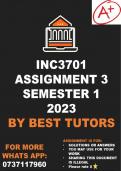, 9.1.1.1 Two words used by teachers in the extract that suggest confusion between special
education and inclusive education are "special" and "frail." The phrase that indicates this
confusion is "in need of very special care."
9.1.1.2 The story reveals that the physical environment did not accommodate learners like
Jane because she mentions pushing herself in her wheelchair down endless corridors,
which suggests that the school did not have proper accessibility features like ramps or
elevators for wheelchair users.
9.1.1.3 The evidence from Jane's story that suggests the school curriculum did not cater
for learners like her is when she mentions her memories of junior school were not about
learning to read, add, multiply, or acquire practical skills, but rather focused on
physiotherapy and art and craft activities.
9.1.1.4 The evidence from Jane's story that suggests the school system did not prepare
learners like her for the world of work is when she mentions that no employment was ever
envisaged for her. This implies that the school did not provide vocational training or
support for students with disabilities to transition into the workforce.
9.1.1.5
a) The school struggled to implement the principle of acknowledging specially trained
teachers at special schools teaching children who experience barriers to learning because
Jane mentions her negative experiences with school staff treating her as special and in
need of very special care, which indicates a lack of understanding of inclusive education.
b) The school struggled to change attitudes, behavior, teaching methods, curricula, and
the environment to meet the needs of all learners because Jane's memories of junior
school primarily revolve around physiotherapy, art, and craft, suggesting that the
curriculum and teaching methods did not cater to a diverse range of learners' needs.
9.1.1.6 According to the European Agency for Development in Special Needs Education,
the aim of inclusive education is to ensure that all learners, regardless of their abilities or
disabilities, are provided with equal opportunities to learn, participate, and succeed in
mainstream educational settings.
9.1.1.7 These aspects of capacity development can be inculcated in teachers through
professional development programs, workshops, and training sessions that focus on
inclusive education principles, strategies, and best practices. It is essential to provide
teachers with the knowledge, skills, and support necessary to create inclusive classrooms
and promote positive attitudes towards diversity and inclusion. Collaborative efforts
involving education authorities, teacher training institutions, and experienced educators
can contribute to effective capacity development in teachers.




